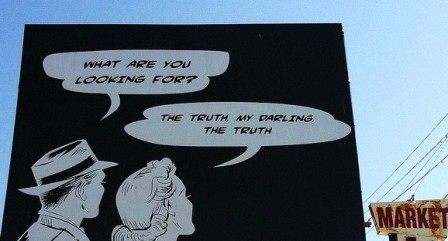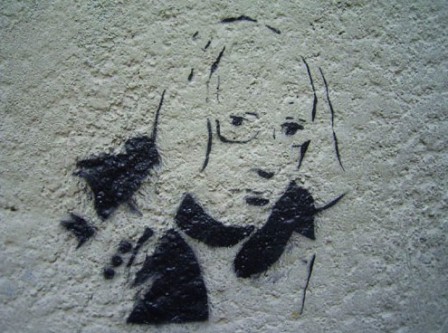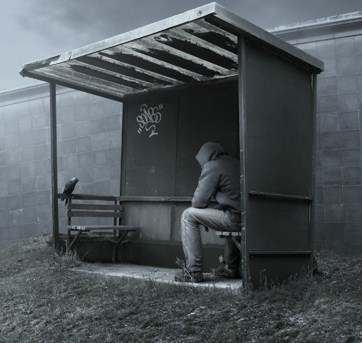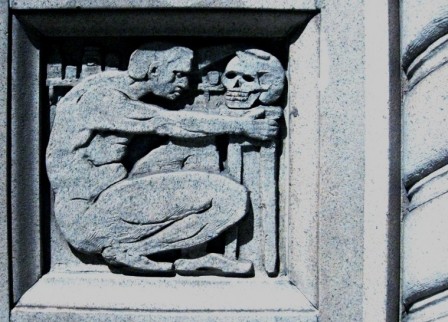Discourse, Truth and Power
Discourse, with Latin root in discursus, synthesizes a dynamics of running through some thing or to some thing, place, situs.
Radicularly contaminated by the Greek notions of logos and dianoia, the Latin notion of discursus incorporated the meaning of thought, intelligence and reflection that pushed it towards the complex semantic development, taken place in the Middle Ages, during the Scholastic period, that guaranteed it, in the conceptual survival pool, the place of permanent cognitive operator towards power practices.
In a contemporary “record” of linguistic analysis, Émile Benveniste expanded the notion of discourse towards levels of pragmatic approach, characterizing it as: all the forms of statement between an emitter and a receiver, mediated by an intentionality of influencing people, texts, contexts, situations and processes, opening, thus, the concept to discourse conception approaches dependent upon the conditions of production of the respective statements, in which the emitters are not considered invested means of some lesser importance in the communication circuit, but, instead, are sociocultural entities in conjunctural situation of strategic arbitrium, builders of discursive formation, conditioned by sociocultural game parameters of ideological, political and economic roots.
It is, precisely, in this context, with origin in Benveniste, that Michel Foucault expands the notion of discourse, intertextualizing it with the notions of knowledge and power and investing it of a certain paradigmatic order of systemic organization: the order of the discourse/ the order of truth/ the order of the things, in the assentment that it is in the societies that the relations of power are developed, characterized and constitute the social body, knowing that they do not work without a production, accumulation and circulation of discourses of truth normalized and destined to percolate the instances of power, from and through that same power, towards effects of specific control of how to live and how to die, concretized by criteria of exclusion.
A certain assentment that the discourse is processual, began in Benveniste, was equally worked upon and reinforced by Michel Pêcheux, in the postulate that the sense of the words that constitute the discourse is determined by the ideological positions placed in game in the sociohistorical process.
Going back, in the notion of discourse, to Parmenides’ Parricide, in Plato’s “Sophist”, with the negation of the tautology of the being’s truth, through the negation of the being by the being and against the “Sophist”, the false discourse came to have the right to a topos of effective ontological reality, with character of necessity.
The discourse should refer itself to some thing and should necessarily be true if it said of the thing that which it was. The discourse would necessarily be false if it said of the thing that which it was not.
In argumentative terms, Plato, in the “Sophist”, displaced and legitimated a paradigmatic matrix with ontological and ethical consequences in the social praxis: the thought could be true and the discourse false, the thought and the discourse might not coincide.
Returning to the contemporaneity and with some influence of Foucault, we reinforce the Platonic heritage in which the discourse and the thought may not coincide. As notion, the discourse, such as the power, is replaced by multiple and heterogeneous unstable relational webs, strategically positioned to the performance as target, as support or as pretext towards configurations of tensional geopolitical dynamics connected with the agencying of tactics, techniques and global/local workings of communication, recording and accumulation systems, whose dynamics of control is assured by relations of force configured by mechanics of action/reaction alienatedly applied.
If, with Aristotle and the Greeks, the human individuals were thought in their condition of living beings, capable of producing discourses, cultures, politics and societies, currently, the condition of living beings is alienated in the markets of life and death in which the calculation operates as a privileged marker, supported by the mechanism of the norm, produced by the juridical system of the law, invested with an excellence of punishment towards the control of the emergence of the discursive aleatorial. And it is in the word of the excluded that the discourse recovers the value of truth that attracts us, that places us in listening, that places us in looking, to, there, search for a sense or a sketch of dignity that escapes us.
Related Articles



















You must be logged in to post a comment Login